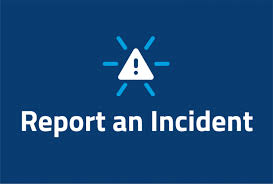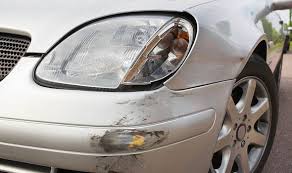Why Your Car Insurance Claim Might Not Be Accepted
Your car insurance policy is designed to help cover the costs of repairing or replacing your car after an accident or other incident. It's one of the most important insurance you'll buy because it ensures you have the financial protection you need when an accident occurs. After you've been in an accident, you might think the hard part is over. After all, your insurance company is going to pay you, right?
Unfortunately, that isn't always the case.
Car insurers use a complex set of guidelines to determine whether and when to offer a settlement. The factors insurers consider include damage done to the insured's vehicle, liability to others, and the type of coverage you choose.
The common reason for Denied Claims
Some common reasons for a rejected claim include:
• Not admitting fault
• Hiding important information
• Lying to an insurer
• Not reporting an accident

• Lacking insurance coverage
• Getting caught driving without car insurance
• Driving a stolen car
• Driving without a valid driver's license
But that's not all. Let's delve into some other reasons why your claim is rejected.
Unmarked damage
You might not notice minor damage that's no fault of your own. But an adjuster probably won't — and that's grounds for denial.

You also might think you're covered for damage that wasn't your fault. For example, someone could park too close to your garage, and your car might hit theirs when the garage door opens. But your insurance company might deny your claim if you've damaged your vehicle in a collision.
Accidents
You might have caused an accident without intending to, but your insurance company might still blame you for the accident. For example, if you're traveling at a high rate of speed and someone rear-ends you, it's natural to think you were at fault. But you could be at fault and still receive compensation if the other driver was at fault or the weather caused the accident.
What Can You Do In Case Of An Incident?
If you've been involved in an accident, it's in your best interests to report it to your insurance company as soon as possible. Insurance companies consider fault when determining how much to offer on a car insurance claim. For example, if you are involved in a hit-and-run situation, it's the other driver's fault. Admitting fault to your insurance company can help speed up the claim process since insurers want to settle claims quickly and fairly.
Damage to your vehicle
An insurance company might deny or reject your claim for damage that's not visible. For example, if your car's engine is damaged by heat, the adjuster might not think it's necessary to inspect it further. If he or she does, the damage could be repaired, but if it turns out to be more serious, your claim could be denied.
But What Happens When Your Car Is Totaled?
It's common for insurers to cut the check to cover a totaled car, but the process is a lot more complicated than that. In fact, your insurance company might also deny your claim if your car is totaled.
What Will You Get In Dire Circumstances?
If your car is beyond repair, the insurance company may offer you the sum of your car's value minus the cost of repairs. However, if your car is worth between $3,000 and $6,000, and it costs $5,000 to repair, the insurance company may only offer you $1,000. This amount is usually lower than what your car is worth, but it's better than nothing.
Related Articles
- Reasons you may need to file a travel insurance claim
- Top Insurance Providers in the World
- Top 5 Homeowners Insurance Mistakes You Should Avoid Making
- Why your auto insurance claim may not be accepted
- Challenges Facing the Insurance Industry Today
- Why You Should Get Over 60s Life Insurance
- Do I Qualify For Life Insurance If I Have A Pre-Existing Disease
- What consumer benefits does life insurance offer?
- How To Make A Claim For Your Stolen Car
- Mistakes you may make when applying for homeowners insurance
Reading Rankings
- Get homeowners insurance for bad roofs
- What Is The Role Of A Home Insurance Broker?
- Mistakes you may make when applying for homeowners insurance
- Do I Require Insurance For My Home-based Business?
- Mistakes You Can Make When Claiming Your Homeowner's Insurance
- How Covid-19 has affected the Insurance Industry
- Why Do You Need Travel Insurance?
- What Does Your Car Insurance Policy Not Cover?
recommended
You might like
- Understanding Mortgage Insurance and Homeowners Insurance
- What Is Insurance Proof?
- The Different Types of Insurance Companies
- Mistakes You Can Make When Claiming Your Homeowner's Insurance
- Reasons why your homeowners insurance may be cancelled
- What are the principles of good insurance?
- What You Need To Know About Auto Insurance For Teenagers
- The role and importance of insurance







